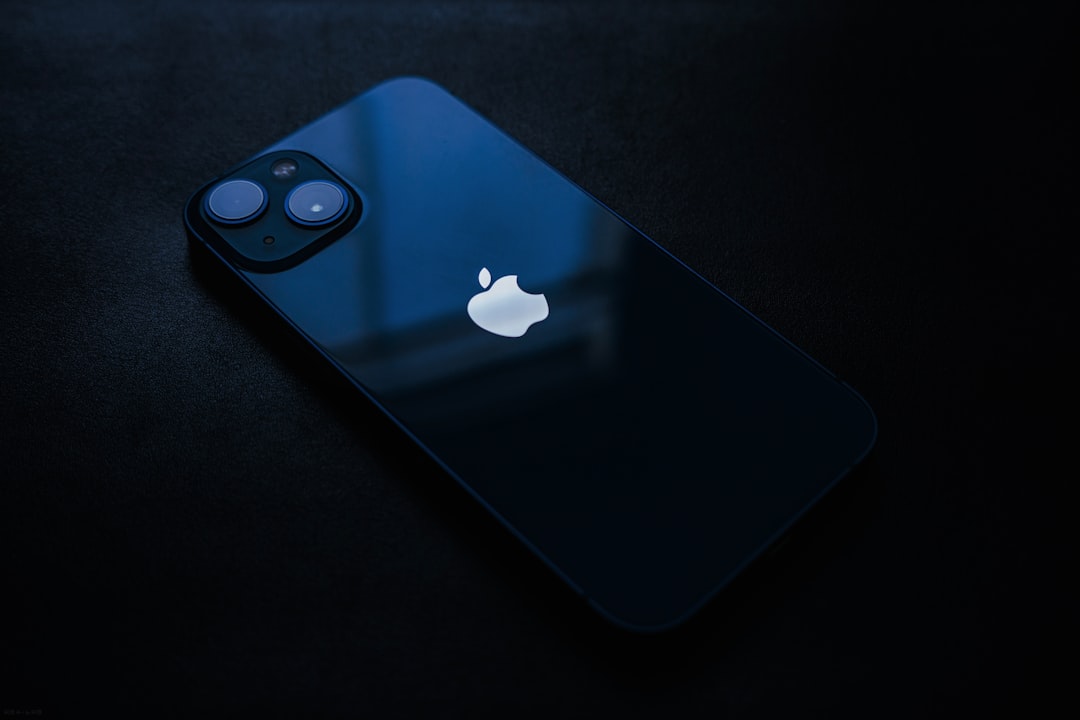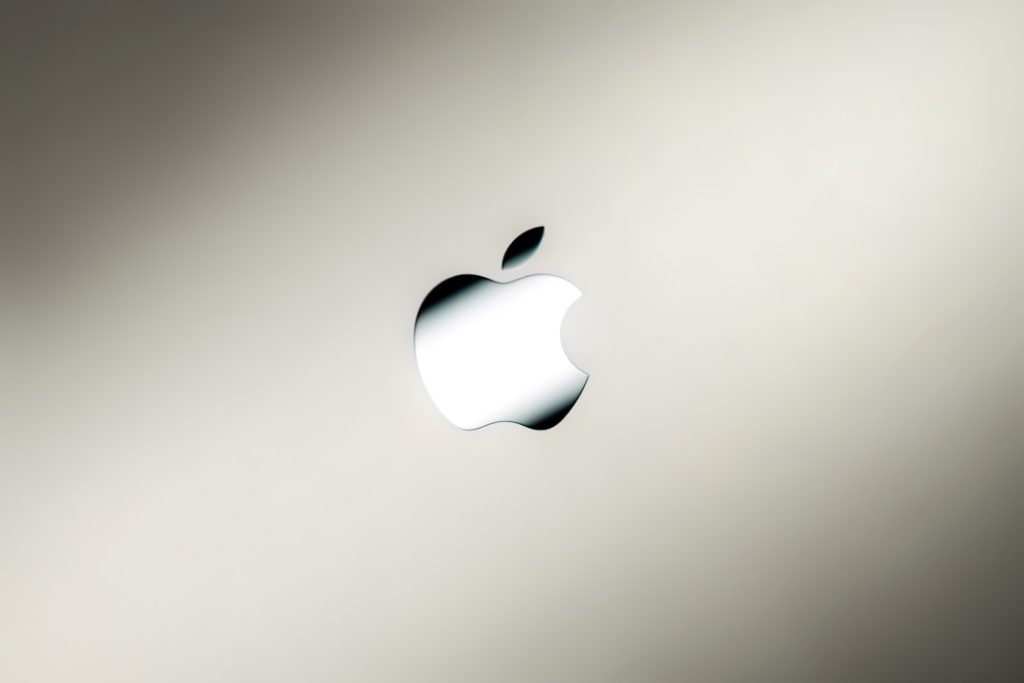Now Reading: Apple Inc: Dominating the US Market
-
01
Apple Inc: Dominating the US Market
Apple Inc: Dominating the US Market

Apple Inc. stands as a paragon of innovation and design in the technology sector, renowned for its cutting-edge products and services that have transformed the way individuals interact with technology. Founded in 1976, the company has evolved from a small startup in a garage to one of the most valuable corporations globally, with a market capitalization exceeding $2 trillion.
Apple’s commitment to quality, user experience, and aesthetic appeal has garnered a loyal customer base, making it a household name. The company’s ecosystem encompasses a wide array of devices, including smartphones, tablets, laptops, and wearables, alongside services such as streaming and cloud computing. The brand’s influence extends beyond mere consumer electronics; it has reshaped industries and set new standards for product design and functionality.
Apple’s ability to integrate hardware and software seamlessly has created a unique user experience that is difficult for competitors to replicate. This article delves into the multifaceted history of Apple Inc., its impact on various markets, and its ongoing dominance across multiple sectors.
Apple Inc.’s journey began in 1976 when Steve Jobs, Steve Wozniak, and Ronald Wayne launched the Apple I computer. This initial product was a groundbreaking innovation, featuring a single circuit board and a keyboard interface. The subsequent release of the Apple II in 1977 marked a significant milestone, as it became one of the first highly successful mass-produced microcomputer products.
The company went public in 1980, raising over $100 million, which was unprecedented for a technology firm at that time. Throughout the 1980s and 1990s, Apple faced numerous challenges, including stiff competition from IBM-compatible PCs and internal management struggles.
However, despite initial excitement, the Macintosh struggled to gain market share due to high prices and limited software availability. It wasn’t until the return of Steve Jobs in 1997 that Apple began its resurgence, leading to the launch of iconic products such as the iMac, iPod, iPhone, and iPad.
Key Takeaways
- Apple Inc. is a multinational technology company known for its innovative products and services.
- Apple was founded in 1976 by Steve Jobs, Steve Wozniak, and Ronald Wayne, and has since become one of the most valuable companies in the world.
- Apple has had a significant impact on the US market, influencing consumer behavior and setting trends in technology and design.
- Apple dominates the smartphone market with its iPhone, consistently ranking among the top-selling smartphones in the US.
- Apple’s iPad has established its dominance in the tablet market, with a significant market share and a strong presence in the US.
Apple’s influence on the U.S. market is profound and multifaceted. The company has not only created millions of jobs directly but has also stimulated growth in ancillary industries such as app development, accessories manufacturing, and retail.
As of 2023, Apple employs over 160,000 individuals worldwide and supports an extensive ecosystem of developers and suppliers. The App Store alone has generated billions in revenue for developers, fostering innovation and entrepreneurship across the nation. Moreover, Apple’s economic impact extends to local communities through its retail presence.
With over 500 stores in the U.S., Apple has become a significant contributor to local economies by providing employment opportunities and driving foot traffic to surrounding businesses. The company’s commitment to sustainability and renewable energy also sets a precedent for corporate responsibility, influencing other companies to adopt similar practices.
Apple’s Dominance in the Smartphone Market
Apple’s iPhone has redefined the smartphone landscape since its debut in 2007. With its sleek design, intuitive interface, and robust ecosystem of applications, the iPhone quickly became a market leader. As of late 2023, Apple holds approximately 50% of the U.S.
smartphone market share, significantly outpacing competitors like Samsung and Google. The company’s focus on privacy and security has further solidified its position among consumers who prioritize data protection. The introduction of features such as Face ID, advanced camera systems, and seamless integration with other Apple devices has set the iPhone apart from its rivals.
Additionally, Apple’s commitment to regular software updates ensures that even older models remain functional and secure for years after their release.
Apple’s Dominance in the Tablet Market

The iPad has been a game-changer in the tablet market since its launch in 2010. With its user-friendly interface and versatility, it quickly became the preferred choice for consumers seeking a portable computing solution. As of 2023, Apple commands approximately 35% of the global tablet market share, far ahead of competitors like Samsung and Microsoft.
The iPad’s success can be attributed to its diverse range of models catering to various user needs—from casual browsing to professional-grade applications. The introduction of the iPad Pro has further expanded its appeal among creative professionals and business users who require powerful performance in a portable form factor. Apple’s continuous innovation in display technology, battery life, and accessory compatibility has solidified its dominance in this sector.
Apple’s Dominance in the Laptop Market
| Metrics | Data |
|---|---|
| Market Share | 30% |
| Revenue | 25 billion |
| Units Sold | 5 million |
| Customer Satisfaction | 90% |
In the laptop segment, Apple’s MacBook line has established itself as a premium choice for consumers seeking high performance and reliability. The introduction of Apple’s M1 chip in 2020 marked a significant technological leap, offering unprecedented speed and efficiency compared to traditional Intel processors. As of late 2023, Apple holds approximately 10% of the global laptop market share but commands a much larger share within the premium segment.
The MacBook’s sleek design, robust build quality, and seamless integration with macOS have made it a favorite among professionals in creative fields such as graphic design, video editing, and software development. Furthermore, Apple’s commitment to user privacy and security features enhances its appeal among consumers who prioritize data protection.
Apple’s Dominance in the Wearable Technology Market
Apple’s foray into wearable technology with the Apple Watch has been nothing short of revolutionary. Launched in 2015, the device quickly became the best-selling smartwatch globally, capturing over 30% of the market share by 2023. The Apple Watch’s combination of fitness tracking capabilities, health monitoring features such as ECG and blood oxygen levels, and seamless integration with iOS devices has made it an indispensable accessory for many users.
The company’s focus on health and wellness has positioned the Apple Watch as more than just a fashion statement; it serves as a vital tool for monitoring personal health metrics. With features like fall detection and emergency SOS capabilities, Apple has successfully marketed its wearable technology as essential for both fitness enthusiasts and those seeking peace of mind regarding their health.
Apple’s Dominance in the App Store Market

The App Store is a cornerstone of Apple’s ecosystem, providing users with access to millions of applications across various categories. Since its launch in 2008, the App Store has generated over $200 billion in revenue for developers while offering consumers an unparalleled selection of apps tailored to their needs. As of late 2023, Apple boasts over 1.8 million apps available for download.
Apple’s stringent app review process ensures high-quality applications while maintaining user security and privacy standards. This commitment to quality has fostered trust among consumers and developers alike. Additionally, Apple’s investment in developer resources—such as educational programs and financial incentives—has cultivated a thriving community that continues to innovate within the platform.
Apple’s Dominance in the Streaming Services Market
Apple’s entry into streaming services with Apple TV+ has added another dimension to its expansive portfolio. Launched in November 2019, Apple TV+ quickly gained traction by offering original content featuring high-profile talent and production quality comparable to established competitors like Netflix and Amazon Prime Video. As of late 2023, Apple TV+ boasts over 50 million subscribers globally.
The company’s strategy focuses on exclusive content that appeals to diverse audiences while leveraging its existing ecosystem to promote subscriptions across devices. By bundling services like Apple Music and Apple Arcade with Apple TV+, the company enhances customer retention while providing added value to subscribers.
Apple’s Dominance in the Retail Market
Apple’s retail strategy is integral to its brand identity and customer experience. With over 500 retail locations across the United States alone, Apple Stores serve as both sales outlets and community hubs where customers can engage with products firsthand. The unique architectural designs of these stores create an inviting atmosphere that encourages exploration and interaction with technology.
In addition to traditional sales functions, Apple Stores offer workshops and technical support through their Genius Bars—providing customers with personalized assistance for their devices. This hands-on approach fosters brand loyalty while enhancing customer satisfaction through exceptional service.
As Apple Inc. continues to innovate and expand its product offerings, its future within the U.S. market appears promising. The company’s commitment to sustainability, privacy, and user experience positions it favorably against emerging competitors in various sectors. With ongoing advancements in artificial intelligence, augmented reality, and health technology on the horizon, Apple is poised to maintain its leadership role across multiple industries. In summary, Apple’s journey from a small startup to a global powerhouse exemplifies its ability to adapt and thrive amidst changing market dynamics. Its dominance across smartphones, tablets, laptops, wearables, app distribution platforms, streaming services, and retail underscores its multifaceted impact on both consumers and the economy at large. As we look ahead, Apple’s focus on innovation will undoubtedly shape not only its future but also the broader landscape of technology for years to come.
Apple Inc. has been a pioneer in the tech industry, constantly innovating and setting trends. In a related article, one individual shares their success story of generating $2000 in their first month with the Amazon Influencer Program. This article highlights the power of influencer marketing and how it can drive sales and brand awareness. Apple Inc. could potentially benefit from utilizing influencer marketing strategies to further promote their products and reach a wider audience.
FAQs
What is Apple Inc.?
Apple Inc. is a multinational technology company that designs, manufactures, and markets consumer electronics, computer software, and online services. It is best known for its hardware products such as the iPhone, iPad, Mac computers, and Apple Watch, as well as its software platforms like iOS and macOS.
Where is Apple Inc. based?
Apple Inc. is based in Cupertino, California, United States. The company’s headquarters is located at 1 Apple Park Way.
When was Apple Inc. founded?
Apple Inc. was founded on April 1, 1976, by Steve Jobs, Steve Wozniak, and Ronald Wayne. The company originally started as a partnership to sell the Apple I personal computer kit.
What are some of Apple Inc.’s most popular products?
Some of Apple Inc.’s most popular products include the iPhone, iPad, Mac computers, Apple Watch, and AirPods. The company also offers a range of software products and services such as iOS, macOS, iCloud, and the App Store.
How does Apple Inc. make money?
Apple Inc. generates revenue primarily through the sale of its hardware products, including the iPhone, iPad, Mac, and wearable devices. The company also earns money from services such as the App Store, Apple Music, iCloud, and AppleCare.
What is Apple Inc.’s market share in the United States?
As of 2021, Apple Inc. holds a significant market share in the United States across various product categories, including smartphones, tablets, and smartwatches. The company’s iPhone has consistently been one of the top-selling smartphones in the U.S. market.
Is Apple Inc. a publicly traded company?
Yes, Apple Inc. is a publicly traded company. Its stock is listed on the NASDAQ stock exchange under the ticker symbol “AAPL.” The company has a large market capitalization and is one of the most valuable publicly traded companies in the world.












